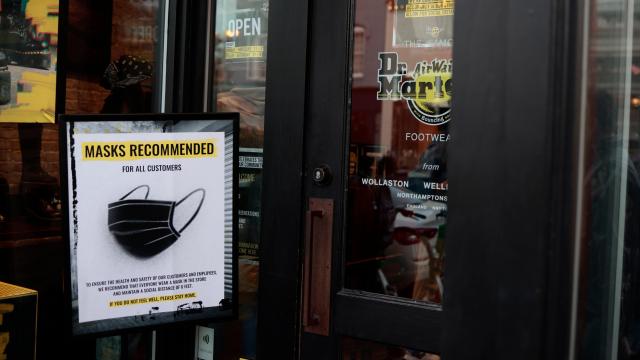The Centres for Disease Control and Prevention has changed the language of its advisory to travellers concerning monkeypox, days after another wording change. The agency’s warning no longer includes a recommendation for travellers to wear a mask (for monkeypox, at least — it still recommends masking for covid-19). They’ve argued that the switch was made to avoid “confusion.”
Since mid-May, the CDC has considered monkeypox to warrant a level 2 alert for travellers, meaning they should take some precautions. These include avoiding people with possible symptoms of monkeypox, such as bumpy rashes along their skin or around their genitals, and avoiding contact with sick or dead wild animals. On June 2, the travel notice was altered to recommend that travellers mask up, stating that “wearing a mask can help protect you from many diseases, including monkeypox.” But by late Monday evening, June 6, the masking language was removed.
“Late yesterday, CDC removed the mask recommendation from the monkeypox Travel Health Notice because it caused confusion,” a CDC spokesperson said Tuesday, Reuters reported.
Monkeypox is a zoonotic viral disease typically spread from rodents to humans. But this year has seen an explosion of cases far beyond the few parts of Africa where the virus is thought to be endemic, along with sustained person-to-person transmission. Experts fear that these outbreaks, if not contained soon, may allow the virus to gain a foothold in new regions of the world, allowing it to cause more frequent outbreaks moving forward.
The virus is thought to predominantly spread through close contact. And it’s strongly suspected that sexual contact in particular is one of the driving forces behind its unprecedented spread this year. But at least one lab study has found that the virus can theoretically linger in the air long enough to be spread through respiratory droplets and aerosols. And elsewhere, the CDC does note the virus “can be spread by respiratory secretions during prolonged, face-to-face contact”
So although airborne monkeypox isn’t the most pressing transmission risk, it’s also not an impossibility either, which makes the CDC’s retraction all the more perplexing. Perhaps more worrying is that this is just the latest example of the public health agency stumbling in its communication to the public — something that’s become fairly common during the covid-19 pandemic.
Indeed, the CDC has repeatedly said that people can stop wearing masks for covid at various points over the past two years, only to walk it back later. Currently, people are recommended to wear masks if the threat of covid is considered high in their community. Other times, the agency has been criticised by outside experts for loosening its recommendations on covid-19 testing and isolation.
